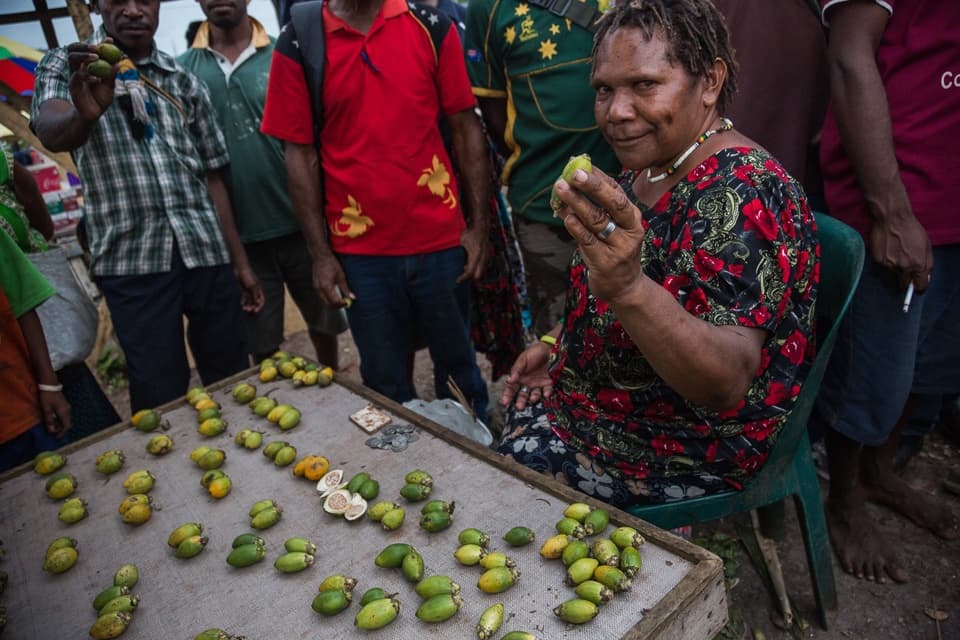New PNG betelnut deal could create more problems

Source: Radio New Zealand
The director of Papua New Guinea's Institute of National Affairs says a plan to sell betelnut in packaged form in Port Moresby could create a whole new set of problems.
The Governor of National Capital District, Powes Parkop, has signed an agreement with Askopina Limited, which will purchase betelnuts from producers in Central and Gulf provinces, and sell them to licenced vendors within the city to trade.
As part of the new packaging, the betelnut is husked and sold in an air-tight plastic bag.
Paul Barker says the deal is likely to take work away from people who rely on it the most.
PAUL BARKER: It does seem to be a way of taking some of the value added away from the domestic producers, processors, retailers, many of whom are low-skilled, low-income people who have few other opportunities to earn income in a city which has a very high cost of living and some real social problems that need to be addressed, and where people do need access to income. It's also a concern in terms of diversion from the major issues which do seem to be that the city needs to provide more space and opportunities for the informal economy, to give them opportunities to earn income in producing, processing products and so on. And this deal, it could potentially provide opportunities for abuse through licensing arrangements. There are so many licensing arrangements in Papua New Guinea at the moment which are subject to abuse where officials basically extort funds and it becomes a bit of a cartel or a mafia type arrangement for those who are privileged to have licences. So these are some of the concerns. Certainly the issue and concern that the city council has of trying to clean up the city and ensure that waste isn't spattered across the city is a valid concern. This new mechanism may assist but it also has a number of risks associated with it and it does seem to once again take away money from the people who seem to need it and seems to transfer it to another interest.
MARY BAINES: What do you think this will do to the cartels that have been emerging, the black market?
PB: Betelnut went somewhat undercover, betelnut selling in the national capital after the ban was introduced and as time went along, it went back more onto the streets again. This is obviously another attempt to get it off the streets and to try to come up with some constructive mechanism to assist people to still have access to their betelnut and make it more hygenic. Whether it is an effective mechanism on the other hand I suppose will remain to be seen. But it does create its own risks, potentially creates its own mafia arrangements or its own problems with licensing and associated extortion there. But yes, you have sort of groups that somewhat dominate the trade at the moment, but it does still involve many hundreds of people who are actually involved in retailing and transporting. It is a major employer and income earner for many.
